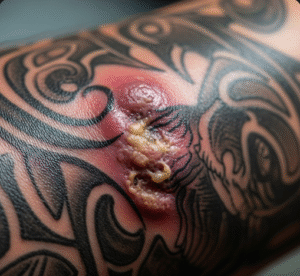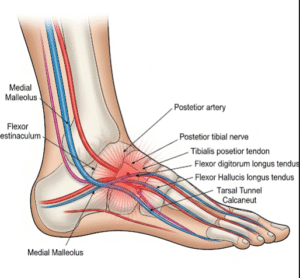Overview
Sepsis from invasive staph infections is a life-threatening condition that occurs when Staphylococcus aureus (commonly known as staph) enters the bloodstream and triggers a widespread inflammatory response. In Korea, the combination of early detection systems, advanced microbiology labs, and intensive critical care has enabled hospitals to effectively manage even aggressive strains like MRSA (methicillin-resistant Staphylococcus aureus).
What is Sepsis from Invasive Staph Infections?
Invasive staph infections occur when Staphylococcus aureus, a bacteria commonly found on the skin or in the nose, invades deeper tissues or the bloodstream. When this leads to sepsis, the body responds with a severe and uncontrolled immune reaction that can damage organs and tissues.
This form of sepsis is particularly dangerous because staph can rapidly multiply and may resist many antibiotics.
Symptoms
Symptoms may escalate quickly and include:
- High fever and chills
- Rapid breathing and heart rate
- Confusion or disorientation
- Low blood pressure (hypotension)
- Pain or swelling in localized infected areas (e.g., joints, wounds)
- Skin abscesses or boils
- Pus drainage from surgical wounds or IV lines
- Decreased urine output
Signs of sepsis can be subtle at first but worsen rapidly.
Causes
The primary cause is Staphylococcus aureus entering the bloodstream through:
- Open wounds or cuts
- Surgical incisions
- Infected intravenous lines (catheters)
- Contaminated medical equipment
- Skin abscesses or cellulitis
- Pneumonia or osteomyelitis caused by staph
MRSA strains, which are resistant to common antibiotics, are particularly associated with hospital-acquired invasive infections.
Risk Factors
People at higher risk include:
- Hospitalized patients (especially those in ICUs)
- Individuals with weakened immune systems (HIV, cancer, transplant recipients)
- People with chronic conditions like diabetes or kidney disease
- Those with surgical wounds, catheters, or IV devices
- Residents of long-term care facilities
- Individuals with a history of recurrent skin infections or MRSA
Complications
If untreated or poorly managed, invasive staph sepsis can lead to:
- Septic shock
- Endocarditis (infection of heart valves)
- Osteomyelitis (bone infection)
- Lung abscesses or pneumonia
- Kidney failure
- Disseminated intravascular coagulation (DIC)
- Death
Prevention
Prevention strategies include:
- Rigorous hygiene and wound care
- Screening for MRSA in high-risk patients before surgery
- Proper sterilization of medical equipment
- Hand hygiene protocols in hospitals
- Timely treatment of staph skin infections
- Antibiotic stewardship to reduce resistance
Treatment Options in Korea
South Korea uses a combination of advanced infectious disease management, rapid diagnostics, and critical care protocols to treat sepsis caused by staph.
1. Diagnosis
- Blood cultures to confirm the presence of S. aureus
- PCR and molecular diagnostics for rapid MRSA detection
- Imaging (CT, MRI) to locate abscesses or organ involvement
2. Antibiotic Therapy
- IV vancomycin or linezolid for MRSA
- Nafcillin or cefazolin for MSSA (methicillin-sensitive S. aureus)
- Adjustment based on antibiotic susceptibility testing
3. Surgical Drainage
- Drainage of abscesses or infected joints
- Removal of infected devices (e.g., catheters)
4. Supportive Intensive Care
- Fluid resuscitation
- Vasopressors for low blood pressure
- Mechanical ventilation if lung function is compromised
- Dialysis for kidney support
5. Infection Control Measures
- Isolation of MRSA-positive patients
- Use of PPE (gloves, gowns) in hospital settings
- Continuous monitoring of hospital-acquired infection rates













